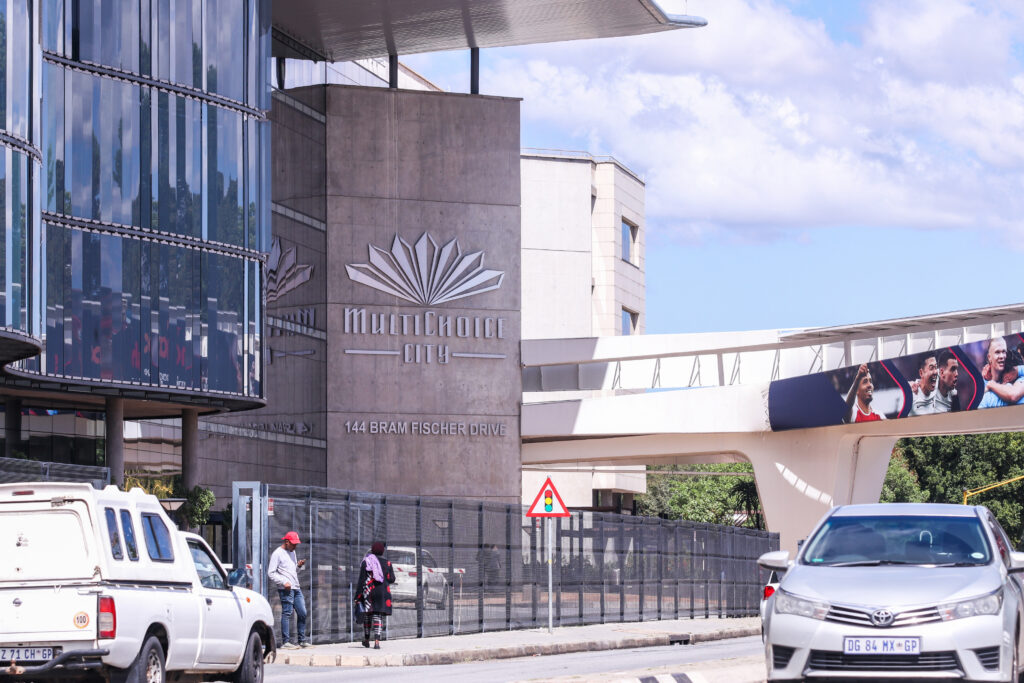You can also listen to this podcast on iono.fm here.
JIMMY MOYAHA: We know that the team at Mango, or the airline that is Mango Airlines, has been going through quite a challenging time – in fact, so challenging that they went into business rescue.
Read:
Mango Airlines to enter business rescue, says SAA interim CEO [Jul 2021]
SAA distances itself from Mango sale, ticket claims [Jun 2025]
We have a bit of an update around that to potentially see where we go from here with the Mango airline.
I’m joined on the line by the business rescue practitioner who was handling the business rescue process at Mango, Sipho Sono, to take a look at the latest developments and see if we can make sense of things. Sipho, thanks so much for taking the time.
Let’s perhaps start with an overview of where in the business rescue process we are, and where the business stands at the moment.
SIPHO SONO: Okay. Thank you very much and good evening to you, Jimmy, and your listeners. We are at a point where we are on the cusp of finalising a transaction, a sale of shares transaction which will result in Mango being privately owned by an investor we identified as part of the business rescue process.
We are busy exchanging documents with SAA, a sale of shares agreement. Once that is done we would be in a position to then announce who the investor is.
The business is not operating currently, as you would be aware. It was grounded soon after it filed for business rescue and has not operated since.
Also what has happened is that because of the lengthy litigation that we were involved in with the Department of Public Enterprises, we lost quite a bit of time, which then resulted in the suspension of licences and ultimately they were cancelled.
But we do have a workaround to that, so we’re still proceeding with the sale.
JIMMY MOYAHA: Sipho, I want to get a sense of what we have as a business at the moment. You touched on the fact that the airline was grounded shortly after going into business rescue. At that time what was the value of the company, what did we have in terms of assets? We had around 55 000 unflown customers at that time, and that [had] a value there as well.
When we went into business rescue, what was the state of Mango Airlines, and what is the state of it now?
SIPHO SONO: When we went into business rescue, Mango on the balance sheet had only a spare aircraft engine. All of the aircraft were leased.
It didn’t have any aircraft on the balance sheet. So the value was more the value of the brand, the customer base – and that’s what we had.
Obviously the licences were part of that package, but we know with what has happened now that that value has diminished quite significantly.
But the investor is still quite prepared. He likes the brand; so in essence that’s what we are selling.
JIMMY MOYAHA: Just to be clear, the licences that Mango Airlines holds have since lapsed following all the developments that have happened in the last four or five-odd years or so. And where we stand now, the business that is being sold is being sold without a licence, with nothing other than what was on the balance sheet beforehand and the client book. Is that where we currently stand on the business?
SIPHO SONO: Yes, you’re correct. That’s where we stand.
JIMMY MOYAHA: From a South African Airways perspective, I know part of your responsibility as the business rescue practitioner is to then put forward the best possible deals and options that are available to the current stakeholder, that being SAA, and for them to then make a decision.
SAA put out a press release earlier today, stating that the business rescue process was still ongoing, and confirming some of the details that you’ve shared with us today.
From an SAA perspective, is there an indication that SAA might want to proceed in a different direction with this, perhaps revive the business for themselves? Are they looking at other options beyond the sale that is being put in front of them at the moment?
SIPHO SONO: No, no, Jimmy, that decision was made a while back.
SAA took a decision, supported by the then Department of Public Enterprises, that they would not be investing further in Mango – other than the financial support that was provided to enable the restructuring with the ultimate aim of selling the airline.
That decision has not changed, and so we are proceeding with the sale.
So no, SAA has not changed its stance on the issue.
JIMMY MOYAHA: Sipho, you mentioned earlier that there was some litigation that you had to contend with as part of the business rescue proceedings – and that has finally been concluded, I’m guessing at this stage, given that we are now able to proceed.
Part of that would then obviously include things like customer claims, refunds, settlements of some sort. Whether it’s from a customer perspective or from a lease-agreement perspective, all of those other matters – would those now sit with Mango, because the press release that we got from South African Airways states that they would not be involved in any of the claims against Mango Airlines.
Is that now going to be the responsibility of the new buyer?
SIPHO SONO: There are two categories of claims. The first category and the major one is claims from creditors, which would include lessors, it would include Sars, it would include South African Airways itself, South African Airways Technical, and so forth.
So those are the creditors which, at the start of business rescue, were standing at about R2.7 billion.
The business rescue plan proposes that they be paid a dividend on what they are owed, which is estimated between five and 10 cents in full and final settlement of those claims.
The other category you referred to is customers with unflown tickets.
The business rescue plan makes a distinction for them. It makes an allowance for them to be issued vouchers to the value of their tickets. So, in other words, there’s no write-off for them – obviously provided that the transaction with the investor is successfully implemented.
They’ll get a voucher that will be open for use for a period of time, and they can then use that to purchase a ticket to whatever destination Mango would be flying at that point in time. So that’s the lay of the land as far as the creditors are concerned.
All the leases were cancelled, by consent with various lessors, and all their claims are rolled up into the total claims book of R2.7 billion.
JIMMY MOYAHA: Sipho, before I let you go, I want to look at the value that then remains within the Mango business. You touched on the fact that it is the brand that is being transferred, the customer base. There are no leases that are transferring over. How did you arrive at a nominal value or a value for the transaction, understanding that that value might still be confidential at this stage?
SIPHO SONO: Yes. If you look at the equity value, which in other words would be the value of the shares that are being sold, it’s nothing because, as I said, there were very few assets on the balance sheet and there are significant liabilities.
So the nominal value to be paid to SAA is just that, just the nominal value. It’s nothing of significance.
The important thing for the creditors is that, if you look at the value of the unflown ticket liabilities, we were looking at R180 million. And now if you take that R180 million out of the pool of creditors, and the investor is assuming that that is part of the consideration that is available for the creditors – I must stress that – and not South African Airways.
And also the engine that was on the books has been realised and it would also go towards the settlement of creditors.
But I can’t talk numbers until we are ready to announce the deal in full.
JIMMY MOYAHA: Certainly the end of an era, and a way forward has been found in relation to the business that is Mango Airlines.
We’ll leave the conversation on that note, Sipho. Thank you so much for the clarity and for the insights.
Sipho Sono, the business rescue practitioner responsible for Mango Airlines’ business rescue process, has been taking us through where we stand on the airline and what comes next.

 1 day ago
1
1 day ago
1






















 English (US) ·
English (US) ·